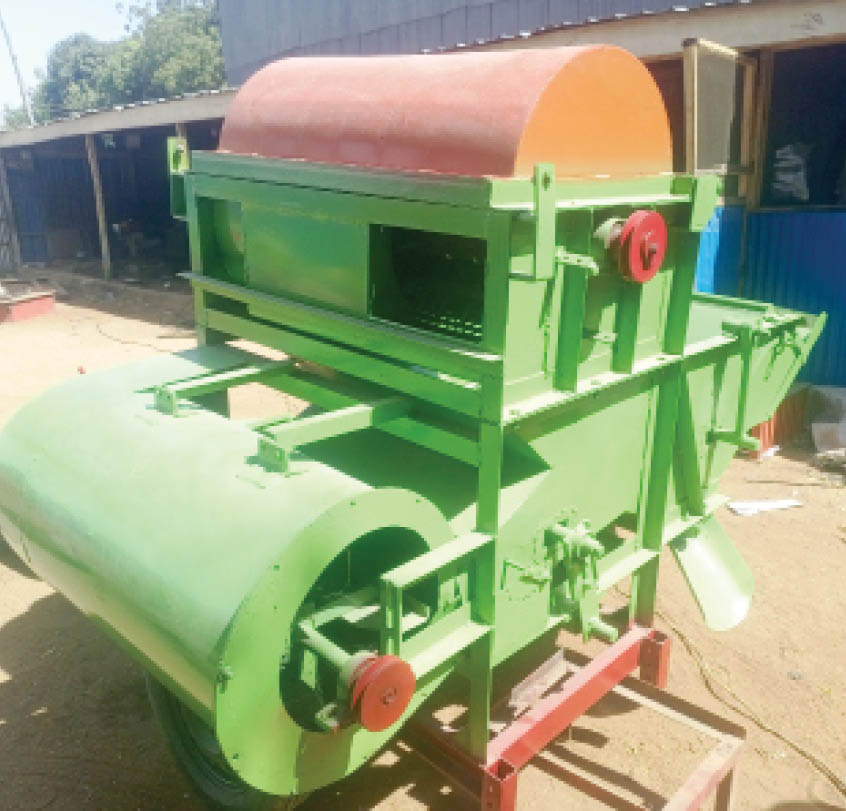At a period when the national agricultural sector is taking a new dimension and agricultural practices are getting more exciting, one of the major hurdles the sector is said to be facing is the unavailability of affordable machines that will ease the rudiments of agricultural production.
Indeed, the agricultural sector in Kano State is undergoing a transformation driven by the increasing adoption of mechanization. However, while this shift is promising for boost productivity and reduce labour burdens, the local manufacturing of agricultural machines faces several challenges. Findings have revealed that these include erratic power supply, high raw material costs, inefficient automation, and a lack of technical know-how on the part of the local fabricators.
It is widely believed that Nigerians are highly intelligent and what they only need is a push, a guide and they will attain the highest peak in their chosen career.
Sani Hassan Musa is a young man who had chosen to be gainfully employed in a metal works workshop. He had spent years as an apprentice before he became a qualified metal works practitioner. However, due to lack of support, Sani has been working in a metals workshop for others despite having acquired enough skills to be an independent metals construction worker.
There are a lot of people like Sani who have been held back by minor hurdles in their quest to attain a certain level in their chosen careers. These enterprising young men/women have in many occasions abandoned their life-time ambitions because they see no light at the end of the tunnel.
Suddenly, what sounds like extension of a lifeline came; the Kano State Agropastoral Development Project (KSADP) funded by the Islamic Development Bank IsDB, Lives and Livelihoods Funds and the Kano State Government launched a training program in collaboration with the Agricultural Engineering Department workshop at the Institute of Agricultural Research (IAR) of Ahmadu Bello University Zaria (ABU) to incubate and empower local fabricators who will locally produce the needed machines that will ease agriculture at an affordable price.
According to KSADP/Sasakawa Africa Association Project coordinator, Malam Abdulrasheed Hamisu Kofarmata, the program is aimed at enhancing the skills of local fabricators and welders to enable them acquire the skills to produce high-quality agricultural machines that meet the needs of smallholder farmers not only in Kano State but across the nation.
He explained that so far, 45 local fabricators have been trained and empowered with welding and fabrication kits worth N8.5 million to enhance their trade and livelihood, adding that the kits given to these 45 local fabricators include a pair of welding helmets, safety glasses, welding inverter machines, angle grinders, safety booths and protective gloves.
Young Sani is among the lucky 45 chosen and trained by the KSADP/SAA project. They were screened and taken to Kaduna where they were trained on how to fabricate agricultural machineries that would be used by Nigerian farmers, as well as wipe away the inferiority complex on made-in-Nigeria products.
The training program, facilitated by the Sasakawa Africa Association (SAA) – which served as one of the agencies implementing the crop component of the KSADP, focused on practical skills development. It was revealed that 90 percent of the training was dedicated to hands-on activities that would give the trainees the chance to learn more of practical aspects to be able to do what is expected of them.
Some of the participants revealed that they were taught general safety precautions, how to read manufacturing drawings, operate machine tools, balance rotating parts, and weld components effectively.
The trainees, selected from the 44 LGAs of the state, gained knowledge of the strength of materials and different welding methods. The training program is expected to significantly impact the local manufacturing of agricultural machines in Kano State, by addressing the industry’s key challenges. The KSADP will contribute to increased production of high-quality machines, improve farmers’ access to mechanisation, and enhanced livelihoods for local fabricators and welders.
Sani and his colleagues are now proud certificate holders as well as proud well-equipped individuals who can fabricate machines and earn a living.
“Though I was into the art of metal works for years, I never thought I would be given the opportunity to learn what I have learnt and for free. This training will forever change our lives for the better. I am currently working on fabricating a multi-crop thrasher that will no doubt ease the work load on farmers and other smaller machines,” he said.

 Join Daily Trust WhatsApp Community For Quick Access To News and Happenings Around You.
Join Daily Trust WhatsApp Community For Quick Access To News and Happenings Around You.